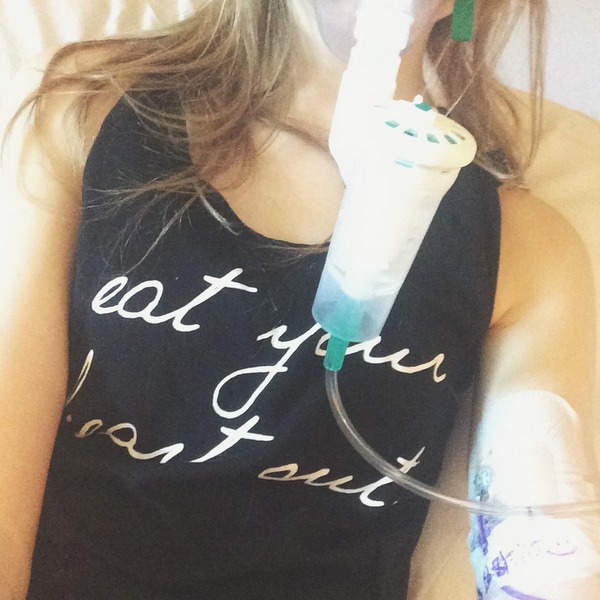High school is generally depicted as late study nights, an abundance of friends and incessant fun during the years that determine life success. You can imagine my disappointment when pain and lethargy took over my days, and the closest thing I had to a friend is my doctor joking that my pallid complexion is in a competition with the pale, lifeless walls surrounding the hospital room.
• What is Ehlers-Danlos Syndrome?
• What Are Common Ehlers-Danlos Syndrome Symptoms?
It was the year before high school when I was diagnosed with Ehlers-Danlos syndrome (EDS), as well as its comorbid conditions, mast cell disease and postural orthostatic tachycardia syndrome, or POTS for short. Receiving a diagnosis for the chronic symptoms plaguing my body was a terrifying time, undoubtedly. Despite the diagnosis, all hope for my teenage years was not lost; however, it definitely took years to find my way.
Here are 10 things I wish I knew as a young teenager after being diagnosed with a chronic disease:
1. You are not alone.
I spent numerous days staring at the spinning hospital ceiling, feeling as if not a soul understood what I am going through. It may seem like there’s nobody else in the world going through similar experiences, but that’s not the case! Don’t be afraid to reach out to others. Use a social media platform or join a local support group to meet other young people dealing with illness.
2. Understand friends come and go.
The teenage years are inevitably a confusing time period in an adolescent’s life. During these years, most are stumbling along, attempting to find their way as they begin maturing. Throwing illness into the mix can make for tricky friendships. When I was diagnosed at 13, not many of my peers could grasp such a complex illness. The presence of appointments, medications and interventions like feeding tubes scared them. They simply don’t know what to say, so the easiest thing they can do is avoid the situation entirely.
3. Be your own advocate.
This speaks for itself. When having a chronic condition, you’re bound to encounter some less-than-helpful medical professionals and family or friends. I know I have. It’s imperative to stand up for yourself and advocate for the needs beneficial to you and your body.
4. It’s OK if you temporarily lose sight of yourself.
Like I mentioned above, the teenage years are a time for developing character and everything that makes you, well, you. Illness adds to the confusion because it tends to come with the sacrifice of prior hobbies, relationships and sometimes even altered physical appearance. I have lost myself numerous times throughout my health journey. Don’t worry — you’ll find your way.
5. Don’t mind when people stare.
I am no stranger to medical accessories, as I like to call them. Whether it’s feeding tubes, central lines, braces or something else, people will stare because those things make us different. Keep in mind that the vast majority don’t mean any harm and are genuinely curious because we stand out. Although you may feel uncomfortable, try not to take offense. You owe an explanation to no one.
6. If all you can do is survive, that’s an accomplishment.
We all have those days when illness prevents anything from getting accomplished. That’s OK. If tomorrow comes and you still cannot do anything but stay in the comfort of your own bed, that’s OK, too.
7. Realize that doctors are human.
Behind the professional white coat and fancy prescription pad, doctors are only human. They are not God. They make mistakes like we do, but do not be hesitant to call them out on it. The sooner you accept that they are human, the easier life will become.
8. Days will come when you are bitter.
Bitterness kind of comes with the territory of being chronically ill. We all endure it. Not that you have to mope all day, but there will be days when observing peers do everything you are too sick to do will take its toll.
9. Don’t abandon all hobbies and passions.
Before my illness took a turn for the worst, I was a softball player. I have also lost countless other hobbies and passions because of my health. It’s important to find new hobbies. Focus on what you can do, rather than everything you can’t. It helps. I promise. Read a good book, take up sewing, stand firm in your faith — the possibilities are endless!
10. Mourn the past, but don’t stay there.
Having a chronic condition is similar to repetitively enduring the stages of grief. As a newly diagnosed teen, I mourned my previously busy life. It’s fine to miss the past, especially when the future seems so uncertain. Keep in mind that thinking of the past will not bring it back. There are brighter days ahead.

